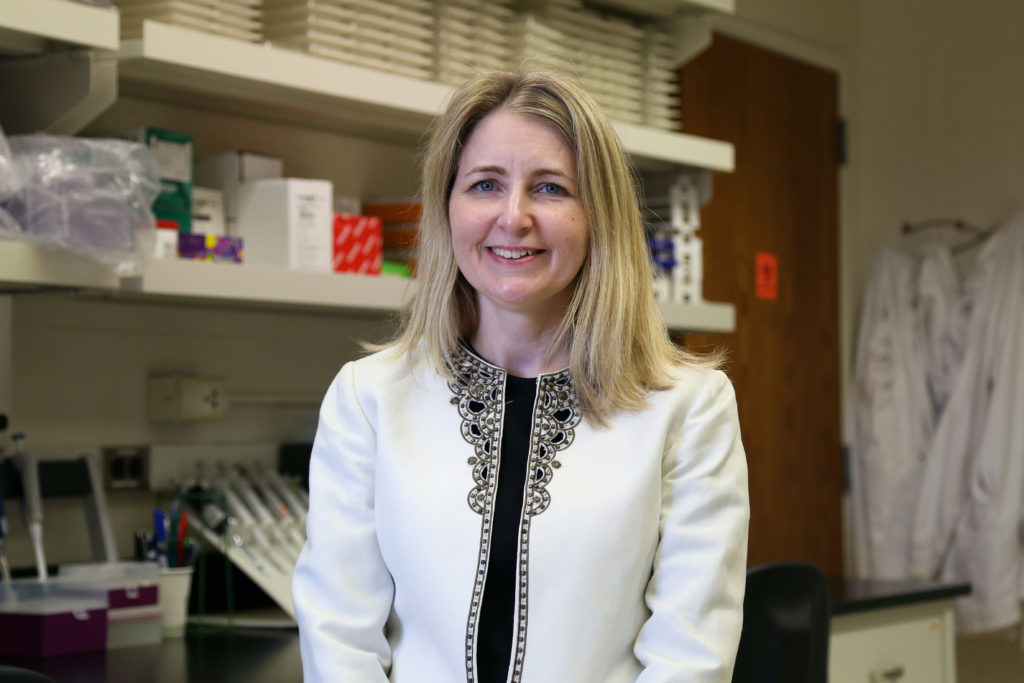GW is partnering with 11 other universities and hospitals to research treatment options for patients suffering from a chronic autoimmune disease.
As part of the partnership, which began in June, medical school researchers are collecting blood samples, skin biopsies and clinical data from early-stage patients suffering from scleroderma – a sometimes lethal autoimmune disease without a cure. Researchers in the cohort said an in-depth study of the autoimmune disease could help identify the disease’s cause and develop more sophisticated patient therapies that will improve the long-term quality of life for early-stage patients.
Researchers said the partnership, called CONQUER, could help develop new treatment options for patients with early signs of scleroderma, like the hardening and contracting of connective tissues, which causes rashes and swollen blood vessels.
About 300,000 people in the U.S. live with the autoimmune disease, according to The Scleroderma Education Project.
Victoria Shanmugan, an associate professor of medicine and the director of rheumatology, said patients who have been living with the disease for five years will be recruited on a voluntary basis by the Scleroderma Clinic – a clinic that treats the autoimmune disease through Medical Faculty Associates facilities. She said blood samples and clinical data will be collected during patient visits.
“There is currently no cure for scleroderma,” Shanmugan said in an email. “While we have some therapies that control some of the disease manifestations, scleroderma remains a life-threatening condition, and there is an unmet need to identify new therapies for this debilitating disease.”
Shanmugan said the goal of the study is to identify new therapies for patients in the early stages of this disease, and enrollment for patient involvement in the study already started. She said results will become available when they are published in medical research journals.
Luke Evnin, the chairman of the board of directors of the Scleroderma Research Foundation, said over the next 15 years, the research cohort plans to enroll thousands of patients in the study, conducting check-up appointments to collect data every six months.
He said the project currently has about 40 patients enrolled, and the team will start to release data annually in 2021. He said researchers may also conduct a more thorough analysis of the data collected.
“I think it is a fantastic example of a relationship between the private philanthropy which is the research foundation, academic institution and ultimately industry cosponsor,” he said. “And, I think, a really fantastic example of a community coming together to advance care.”
Evnin said the study will be partially funded by the Scleroderma Research Foundation and potentially other industrial partners and pharmaceutical companies. He added that all research sites have been cleared to start data collection, except for the University of Michigan, which won’t start data collection until later this month.
The partnership includes researchers from 12 different hospitals and universities, including the Hospital for Special Surgery, the University of Texas Health Science Center at Houston and the University of Utah, according to a release from the School of Medicine and Health Sciences.
Jessica Gordon, an assistant attending in the department of rheumatology at the Hospital for Special Surgery, said researchers for the CONQUER cohort are specifically looking at early-stage patients with the autoimmune disease with the goal of creating a registry – a systematic way of collecting uniform clinical data.
Gordon said focusing on patients in the early stages of the disease allows researchers to track how the disease progresses and identify the most effective treatments moving forward.
“It is really important for us, clinicians and scientists, to come together collaboratively to study these types of illnesses,” she said. “This enables us to study larger numbers of patients to obtain adequate power and advance our understanding of the disease.”
Shervin Assassi, an associate professor of rheumatology and clinical immunogenetics at the University of Texas Health Sciences Center at Houston and a member of the cohort, said he is particularly interested in researching biomarkers, a measurable substance in a patient that can indicate the presence of a disease. He said biomarkers can help researchers understand the molecular basis of the disease, which could lead to more specialized treatment options.
Assassi said the researchers will investigate the natural history of the disease and learn how to predict the disease’s outcomes by analyzing blood samples and clinical data, including health surveys and electronic medical records. He said because the autoimmune disease is rare, collecting a sufficient number of samples from patients is critical for understanding how to treat patients.
“What is special about CONQUER is that it’s only conducted in centers that truly are proficient in the assessment of the nuances of the disease, which can be complicated,” he said. “What is absolutely exciting about this is that it is truly a collaborative effort. It really has a chance to understand this disease.”
Dani Grace and Meredith Roaten contributed reporting.





